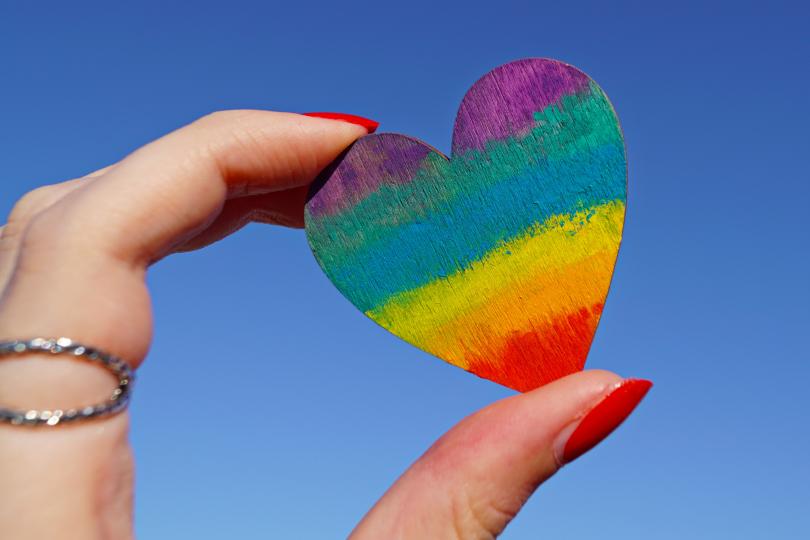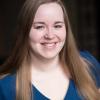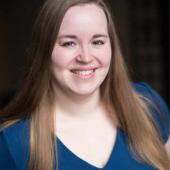“But It’s ACTING!” – When Is It Okay To Play Gay?

“I'm a pretty private person so this is kinda hard for me, but here we go. I'm bisexual. All right. I will now field one minute and zero seconds of questions pertaining to this. Go.” – Rosa Diaz, Brooklyn Nine-Nine, “Game Night” S5E10.
I’ll never forget the first time I saw Rosa’s “coming out” episode of Brooklyn Nine-Nine. I’d just gotten into the show (like many people, thanks to that one Backstreet Boys cold open), and I was spending most of my free time doing a lot of reading and hardcore Googling trying to figure out why exactly I felt so damn broken. I hadn’t yet come out, I was still working to rectify my questions and uncertainties with my conservative upbringing, and I was scared. I was really, really scared.
Rosa Diaz quickly became my favorite character on Nine-Nine, thanks to her dry sense of humor and no-nonsense attitude, and to see her be so vulnerable as to come out to her parents – and get rejected by them, at least initially – was very emotional for me. I looked up Stephanie Beatriz (who plays Rosa) later on Instagram, and was overwhelmed with joy to see that just like Rosa, Stephanie also was bisexual.
Well, no wonder that scene was so good, I thought. She knows exactly what that feels like.
I was elated to learn that Stephanie was the same sexual orientation as Rosa, but also sad that I was so happy. Why isn’t that more common, I asked myself. Isn’t that the way it should be?
Every few months or so, a list goes up on Buzzfeed about actors who stepped “out of their comfort zone” to play characters or real people who were different from themselves. There are usually folks in the comments who mention that it would be nice if queer characters were played by queer actors, but they’re often snuffed out by the trolls who screech, “But it’s ACTING! Isn’t the point of ACTING that the ACTOR can ACT like WHOMEVER they WANT?!”
Certainly not. And Hollywood has no excuse – they have thousands of actors to choose from. If they looked hard enough, I believe they could find the “right” fit for any role they could dream up.
So…what about theatre? Specifically, what about theatre in the Twin Cities?
I am a baby queer (which is my preferred term; I will use “queer” and “LGBTQIA+” as synonyms throughout this article). I came out as asexual 3 or 4 years ago, which in hindsight was very easy. Coming out as asexual (or “ace”) is basically saying “Hello, world? I am not sexually attracted to ANY of you, thank you and have a nice day.” It certainly makes dating a lot harder, but it doesn’t seem to come with as many of the negative stereotypes, name-calling, or online vitriol that some other queer folks face every day. The worst I’ve been called is a “cold virgin,” and as I am both of those things, I chose to take it as a compliment.
But as a baby queer, I often find myself experiencing strong emotions about an LGBTQIA+ topic, but unable to articulate exactly why I feel that way. I’m still learning, still overcoming my upbringing to accept myself in a culture that has been more than happy to embrace me. So, I get a little twinge in my stomach every time I see a straight actor playing a queer character – I know in my gut that it’s wrong, but I wanted to chat with some other LGBTQIA+ folks to see if they agreed; and if so, why.
Is there an epidemic of (queer actors playing straight roles) going on that I’m not aware of?
I spoke to three different LGBTQIA+ theatremakers to get their thoughts on this topic. James Knight-Zappa (he/his) is a gay male director, actor, and playwright who is incredibly passionate about sharing queer stories onstage. “Every effort should be taken to cast LGBTQIA+ roles authentically. There are perspectives, shared life experiences and community traumas, and a history that only an LGBTQIA+ actor can bring to these roles,” James wrote. “Theatre is a haven for queer persons to fully express themselves and form communities, and yet we are still fighting just to be able to tell our stories. …We need the space to be able to tell our stories. We need the space to be able to bring our experiences and our journeys to characters and stories that are written for, and often by, us.”
Kelly Danger (she/her) is a queer female actor and singer based in Minneapolis. Kelly agreed that providing queer artists with space is crucial: “LGBTQIA+ artists should absolutely be prioritized in casting choices for LGBTQIA+ characters and every effort should be made to seek out queer artists for queer roles,” she wrote.
The third theatremaker I spoke to preferred to remain anonymous, so I’ll call them Alex. Alex (they/them) is a queer theatremaker based in the Twin Cities, and they agreed with Kelly and James. “I think overall…in the case of marginalized identities, stories should be told by those most impacted. …I think theatres should wrestle to engage in conscious casting and using their platforms and resources wisely and in service to the community.” It’s difficult to believe a theatre is supporting the community(ies) they claim to support when they aren’t taking the care to cast roles appropriately.
Another common rebuttal from Buzzfeed trolls is if queer actors were the only ones “allowed” to play queer characters, then queer actors certainly shouldn’t be allowed to play straight characters.
James laughed at this. “There’s a pretty good West Wing quote to reference; ‘Is there an epidemic of (queer actors playing straight roles) going on that I’m not aware of?’,” he wrote. “This argument seems like a non-issue, and is a false equivalency to justify continuing to cast straight actors in queer roles. To me, it does come back to representation; representation of queer artists in all roles is representation that is important to end the limited scope of roles LGBTQIA+ actors can be considered for.”
I agree – it’s a false equivalency. When was the last time a straight person was murdered for being straight? Or kicked out of their house? Or ostracized for holding their partner’s hand in public? Or taught in their formative years that the lifestyle that they were pursuing was evil, and they would be punished for it for all eternity?
Well, never.
When was the last time a straight actor won an Oscar for being “so brave” as to play an LGBTQIA+ character?
Well, 2018. Also 2008. And 2005. And and and.
Kelly compared queer folks playing straight roles to the recent influx of gender-bent productions (for example, the current Broadway production of 1776). “I don't have any problem with LGBTQIA+ artists portraying straight characters,” she wrote. “…It feels similar to my feelings about gender bending roles. It gives me LIFE to see a traditionally male role portrayed by a woman. …Women have a dearth of quality roles in theatre (particularly musical theatre and opera), [and] I think the same principle applies to seeing LGBTQIA folx playing ‘straight’ roles. It doesn't make any sense to me to make space for straight people, it absolutely makes sense to me to make space for queer people.”
Alex put it simply: “The reality is in so many (all?) arenas [queer folks] have not achieved equity, there is active harm happening now, and historical harm that lives on unchallenged and unhealed. …Queer people have been and are currently marginalized for that identity. Straight people are not.”
Toward the end of her interview, Kelly raised an interesting point I would like to address. “I think it's difficult to decide which gates to keep in this particular arena,” she wrote. “How straight is too straight? Are people from one queer community ‘allowed’ to play someone from a different queer community? Can a bi woman play a lesbian? Rather than approaching this conversation from a binary place, ‘should straight people play LGBTQIA+ roles?’, I would love to see the conversation pivot to, ‘How do we ensure the LGBTQIA+ community is being represented respectfully, and equitably?’”
if they can’t actually ask people what their sexual orientation is, how do they know they’re prioritizing appropriately?
I agree that there is likely a point at which “gatekeeping” these roles would go too far. If I was only “allowed” to play ace characters, I would never work again. There are two ace characters in the entire theatre canon, and I wrote both of them. I’ve auditioned for lesbian and bisexual characters before, and I intend to do so in the future. Very, very generally, what hardships have lesbian people faced that bisexual people have not faced? What difficulties have bisexual people faced that lesbian people cannot commiserate with? What moments of “other”ing have ace people experienced that pan, gay, lesbian, bi people do not know?
James pointed out that he has seen cis-het actors take great care with queer roles, but unfortunately that isn’t always the case. “I’ve had occasional experiences where I’ve seen straight actors in LGBTQIA+ roles that have taken the sensitivity to portray the role with sincerity,” he wrote. “Meaning, they the play the motivations and emotions of the character instead of relying on mannerisms and cliches to play the role. …However, more often than not, that sensitivity is not taken. When I am sitting in an audience, and see a straight actor play a queer role by relying on physical stereotypes (limp wrists, sibilant S, feminine walk, immediately hysterical), I get insulted, embarrassed, and isolated.” One could argue that this is largely the fault of the director, but a good actor also should take the time to understand their character and their history instead of thinking, “Oh, I know what gay men are like, I saw Will & Grace once.” Or, even better, a good actor should acknowledge that they are unable to play the role authentically, and graciously step aside.
Two unfortunate hurdles to achieving this goal of casting queer roles with queer actors are 1) the scripts traditionally chosen by non-AEA theatres in the Twin Cities overwhelmingly are older shows that do not include LGBTQIA+ characters, and 2) legally, employers/theatres cannot ask someone to identify their sexual orientation (though employees/actors may do so voluntarily).
First, according to most local theatres, the LGBTQIA+ characters in the American canon before 2000 appear to be limited to RENT, Angels in America, and gay men who die of AIDS (because as everyone knows, queer people were invented in the 1990s). Last season, more than one particular local theatre that claims to be inclusive and safe for people of all backgrounds produced exactly zero plays with explicitly queer characters, and this is more the rule than the exception. Casting LGBTQIA+ actors as straight characters or characters with no stated orientation is one thing. Selecting plays with characters written to be LGBTQIA+ is quite another.
Second, theatres can say all they want that they’re “prioritizing queer actors for the role of Character X,” but if they can’t actually ask people what their sexual orientation is, how do they know they’re prioritizing appropriately?
Alex wasn’t sure. “I think too often people are asked to parade their marginalized identities to get resources and opportunities,” they pointed out. Alex has noticed that if they “out” themselves on certain applications, they receive more opportunities than if they don’t, but they don’t think this should be the norm. “Someone shouldn’t have to necessarily ‘out’ themselves to audition for something. …Sometimes theatres may just shrug and say, ‘Well, no one auditioned for us that fits whatever identity’ [and] I would hope to see them do more reflecting of why that is. I would point them to the adage…that there is a difference between saying ‘you are welcome here’ and ‘we built this with you in mind.’ Are you including the queer (or whichever) community at all levels – in leadership, in your board, in your designers? Have you looked at and addressed barriers in your accessibility? Are you actively engaging the community outside of your productions?”
Kelly issued a simple challenge to any theatre interested in casting these roles authentically: “Try harder. I would be happy to see optional self-identification questions on audition forms. I'd also like to see companies asking artists which genders and orientations they are comfortable with, willing, and/or prefer to portray.
Keep in mind, theatres, actors choose you as much as you choose them. And if they aren’t choosing you, have you ever wondered why?
In conclusion, if a theatre is serious about supporting and connecting with the LGBTQIA+ community, start by choosing plays that present three-dimensional queer characters. Maybe those characters even end up happy at the end. Don’t know where to start? A good first step is ensuring queer people are in the room where decisions are being made. A good second step is looking to the queer playwrights in town – there are a lot of us, and we like being hired (::cough::). Next, consider how you are making your space safe for the LGBTQIA+ community. What are the other shows in your season (if another show is homophobic, but there’s one “token queer show,” that’s certainly not safe)? What is your company’s mission statement, or statement on inclusivity? Do you rehearse or perform in a space that does not support or welcome LGBTQIA+ folks? Finally, take a peek at your audition form. Are you asking for an actor’s pronouns? Great! Now consider adding a line about which genders and/or orientations the actor prefers to play. For a play that centers LGBTQIA+ characters, consider adding an (optional) space for the actor to include their sexual orientation.
“Historically LGBTQIA+ folx have been overrepresented in the artist pool, and underrepresented in the character pool,” Kelly wrote. “There have always been queer folx telling straight stories for mostly straight audiences, erasing their own identities to pass on the stage and tell the stories that sell, the safe stories that wealthy patrons will pay for. Queer stories have rarely been told, and even less often told well. I think as queer stories become more normalized, it is critical to ensure that queer artists aren't doubly erased by casting straight people to tell queer stories.”
“Representation matters; especially for an invisible minority like being LGBTQIA+,” James concluded. “What is defeating as a queer artist [is] why do we have to have our involvement in a show justified? Why is our community still having to say, ‘Cast us in roles written for us?’ What other minority group gets categorized as “an acting challenge” when someone outside that group takes the role? Why is our representation negotiable?”
I don’t know, man. I don’t know.
We’ve issued a number of challenges to theatres in this article, but I’d like to leave you with one for the actors. Actors – think about the roles you’re auditioning for. If you’re straight, consider removing yourself from consideration for Alison Bechdel, Georges and Albin, or Frank-N-Furter. Contemplate how removing yourself from the conversation provides space for LGBTQIA+ actors to be considered and cast in a role that fits their identity. If you’re LGBTQIA+, audition in spaces you feel safe, with directors you feel safe, with plays or musicals that uplift queer characters. If you’re an ally, lobby the theatres in your area to choose more diverse and inclusive productions, and cast and staff them appropriately.
I look forward to the day where we live in a world where this article is irrelevant. Until then, my queer ones, you are welcome here. You are allowed to take up space. You are allowed to make the world a better place by being in it. And you do.




